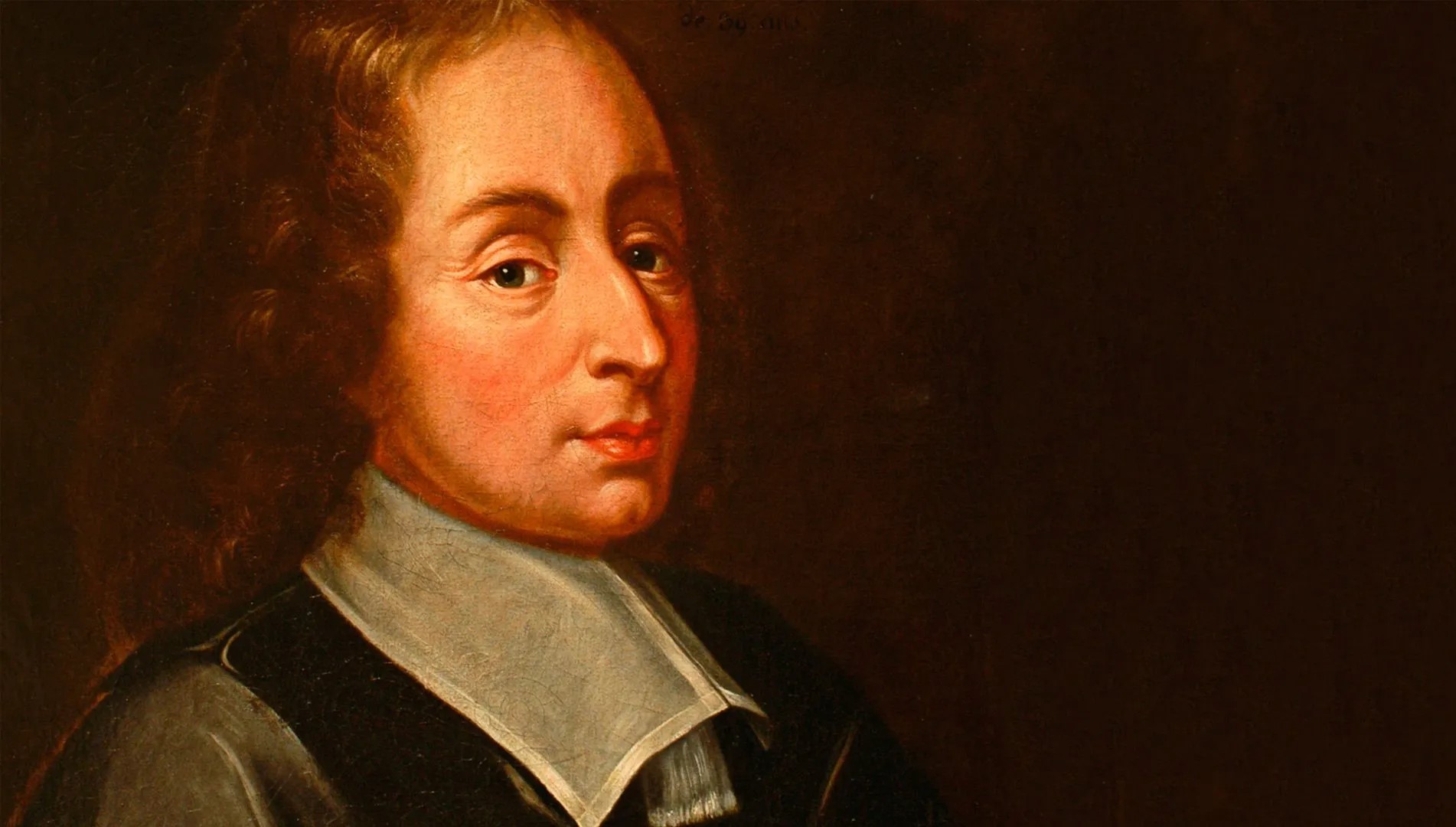He paved the way to the invention of the computer: Who is Blaise Pascal?
He was a French mathematician, physicist, and thinker. The binary calculator he invented led to the birth of today's computers.

Blaise Pascal was born on June 19, 1623, in Clermont-Ferrand, Auvergne region of France. He lost his mother when he was only 3 years old. His father, Étienne Pascal, moved to Paris before remarrying and they continued their lives by hiring a servant. Father Pascal was an expert in mathematics and noticed the mathematical genius in his son. He started to convey and educate all he knew.
When Pascal was only 12 years old, he started drawing circles and equilateral triangles, even though he did not know geometric shapes, and found out for himself that the sum of the interior angles of a triangle was equal to two right angles. His father, who was very interested in mathematics, did not want him to focus on mathematics without learning Greek and Latin well. He forbade Pascal to deal with this subject by hiding all the mathematics books he had previously studied. For this reason, since Pascal was not bothered with numbers in mathematics, he became interested in shapes.
Blaise Pascal (19 June 1623 – 19 August 1662) was a French mathematician, physicist, inventor, philosopher, and Catholic writer. In the winter of 1646, Pascal's 58-year-old father broke his hip when he slipped and fell on an icy street of Rouen; given the man's age and the state of medicine in the 17th century, a broken hip could be a very serious condition, perhaps even fatal.
In his childhood, Blaise Pascal asked his father the question "What does geometry study?" and he received the answer: "It studies how to draw shapes correctly and the relationships between the parts of the shapes." Based on this answer, Pascal began to secretly establish and prove geometry theorems. His father, Étienne Pascal, gave his child, who created wonders with his drawing and imagination before learning the language, Euclid's Elements and Apollonius's Conics in his spare time from language classes. Pascal, who read the books given by his father in his free time from language classes, wrote a work on conics at the age of 16. This work he wrote on conics is still taught as Pascal's theory.
Faced with the perfection of this work, Descartes did not believe that it was written by a young person like Pascal, and even said that it was written by his father.
When Pascal turned fourteen, he was accepted into the scientific discussions led by Mersenne. These discussions gave birth to the French Academy of Sciences. Pascal had become a self-made geometer.
In 1631, his father, Étienne Pascal, sold his second presidential position in the independent court of the Courdes Vices, which was bought and sold with money at that time, for a government bond worth nearly 66,000 livres. It seemed that this money would keep the Pascal family comfortable for a long time. However, the 30-year war reduced the value of the bond to 7000 livres. Like many people, Father Pascal fell foul of the government's opposition policies. Father Pascal, who lost his money and position, won the admiration of his beautiful and bright daughter Jacqueline with her performance in a children's play, attended by her father and the rich and famous Cardinal de Richelieu, who had opposite ideas. When Cardinal de Richelieu learned who this girl was, he became closely interested in her father, Étienne Pascal. He appointed him the King's commissioner, examining the taxes of the city of Rouen.
While Father Pascal was examining tax accounts, 19-year-old Young Pascal invented Pascal's Calculating Machine, a mechanical calculating tool capable of addition and subtraction, in 1642 to alleviate his tiring work. This first machine is still exhibited in the museum in Germany.
He also made a name for himself with his research on physics and chemistry. This extraordinary genius man, who supported the scholars of the time, Fermat and Torricelli, made a new start to his life with religious philosophy after his father's death.
Pascal, who described his magnificent inner world in his work titled "Thoughts" on the subject of religion, ended his worldly life, which his weak body could no longer bear, 2 months before his 39th birthday.
This genius man, who deserves deep respect, is still talked about and taught in all schools for all the experiments he performed and the theories he produced in his short life.
